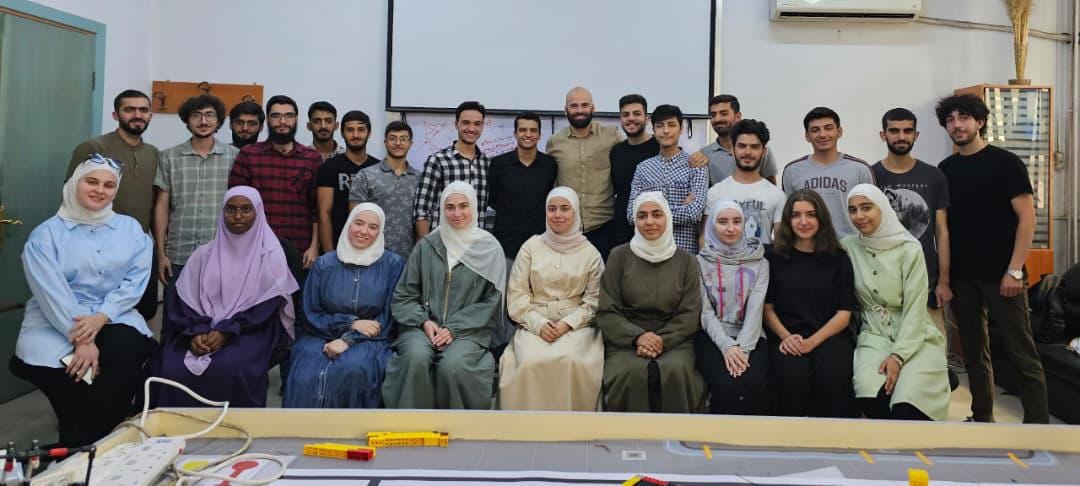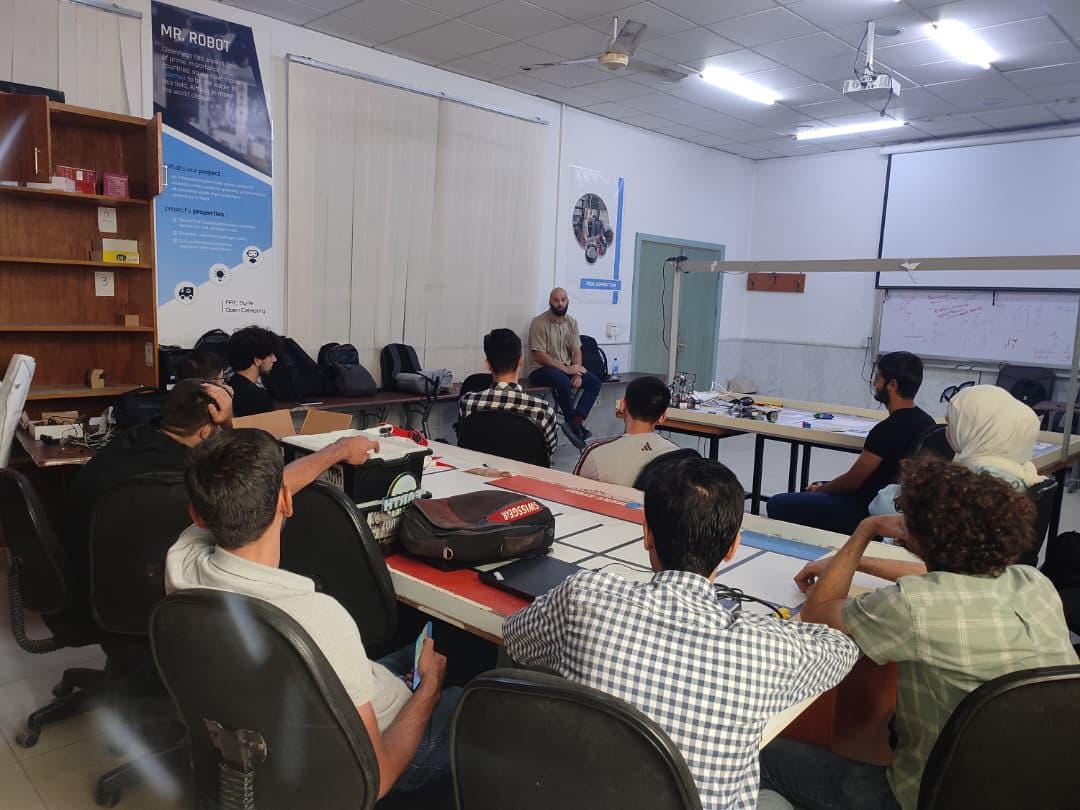The Damascus Robotics Club
What happens when determined builders finally get the tools they deserve
For years, the students at Damascus University’s Robotics Club learned to code without access to GitHub. They had to use VPNs just to reach basic documentation. Import restrictions meant getting electronics required finding friends traveling through Lebanon. Currency controls made online purchases impossible.
So they adapted. They found workarounds for every blocked pathway. They built informal networks to get components. They learned software engineering while being locked out of the platforms most engineers depend on.
When you can’t take the standard path, you get good at finding new ones. When every step requires problem-solving, that becomes your default. The kind of resourcefulness this produces, the instinct to treat obstacles as engineering problems rather than reasons to stop, is what separates people who build things from people who wait for better conditions.
Coming Home
I visited Syria recently for the first time in 17 years. What struck me most wasn’t what these students had been through. It was how forward-looking they were.
They weren’t thinking about constraints. They were excited about what they could finally build. After years of blocked pathways, the barriers were lifting, and everyone I met was focused on the future.
That kind of optimism is rare. It’s what you see in the best builders everywhere, but here it was stronger because these students had spent so long waiting for their chance.
I’m committed to supporting this. Not out of obligation, but because this is exactly the kind of determination that deserves to be accelerated. When you meet people who’ve already proven they’ll figure it out regardless, the question isn’t whether to help. It’s how to remove friction most effectively.
What Happens Next
The regime that created these restrictions is gone. GitHub is accessible. Import bans have lifted. The obstacles haven’t disappeared entirely, but the ceiling just got much higher.
This is the interesting moment: when people who proved they could learn and build despite everything finally get access to proper tools. Determination doesn’t fade when conditions improve. It compounds. Students who spent years working around constraints don’t slow down when friction disappears. They accelerate.
Two ways to remove friction between their determination and what comes next
If you’re an academic, hardware hacker, or engineer in North America, there are two ways to be part of this:
Hardware: Old microcontrollers, obsolete sensors, robotics kits gathering dust in your lab, what’s outdated to you is a significant upgrade from informal smuggling networks. Getting electronics into Syria is still complex but doable.
Knowledge: Years of isolation from international research networks means these students are brilliant self-learners but missing the compound knowledge that spreads through lab conversations. An hour or two in a virtual working session connects them to the wider world of what’s possible.
You’re not rescuing anyone. You’re investing in people who’ve already proven they’ll figure it out. You’re just removing friction between their determination and what they build next.
Reach out if you want to be part of what happens when resilience meets opportunity.


